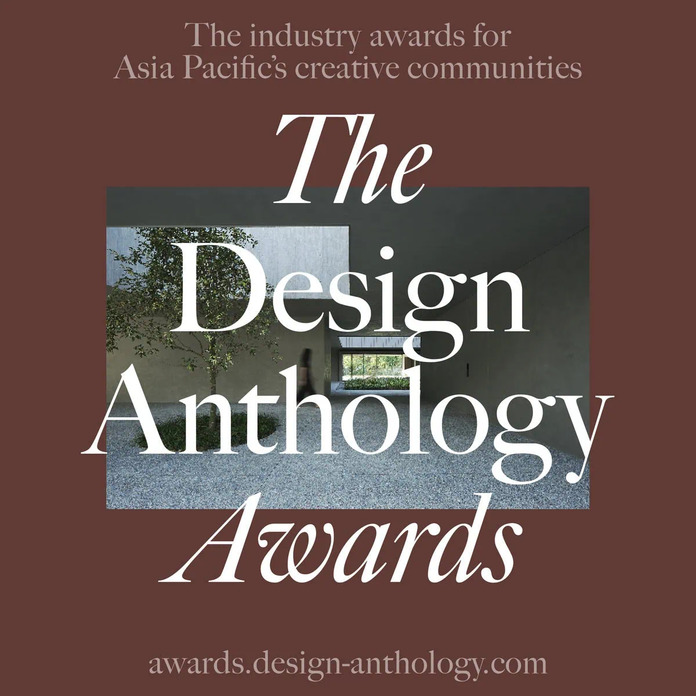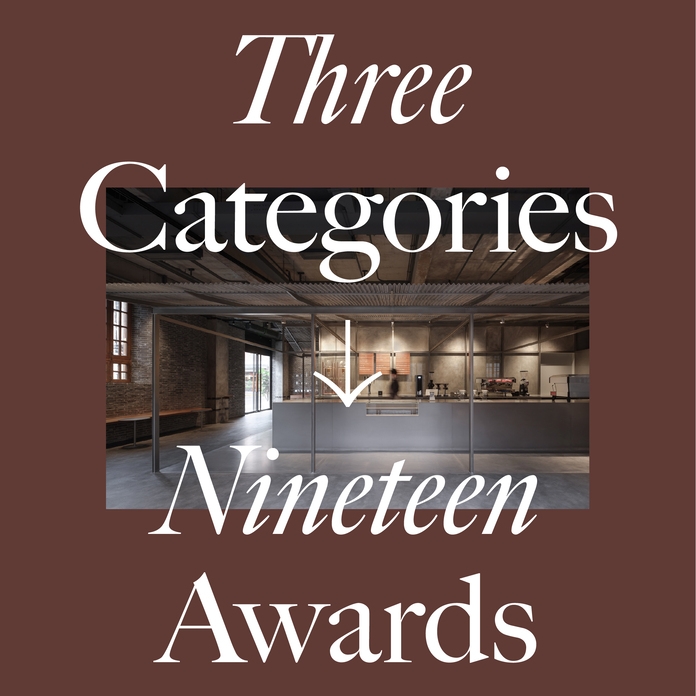【Final Call】Design Anthology Awards 2024

The Design Anthology Awards 2024 seeks to honor outstanding achievements in architecture, interior, and product design, as well as to acknowledge individuals and organizations striving to reshape the public’s understanding of contemporary design in the Asia Pacific region. The Aoyama Design Forum is a proud supporter of the Design Anthology Awards 2024.

The Design Anthology Awards 2024
Entries Deadline
July 31, 24:00(GMT+12)
Entrants
Must be working as a design professional within Asia, Australia and/or New Zealand (except for the Ambassador)
May be individuals or groups
Must be designers except in the case of the Ambassador
Are not restricted by age, except for the Emerging Talent award, for which the designer must be under 35 and have their own practice
Must pay the entry fee quoted at time of payment (JPY 37,500. Can use their subscriber discount code found in their welcome email to access a 40% discount on the entry fee, if they are a subscriber of Design Anthology)
Work
Must be original
Must be located/created in Asia, Australia or New Zealand
Must demonstrate artistic intent in addition to technical proficiency
Must be innovative in the sense that it updates tradition
Places must be in Asia, Australia or New Zealand and must have been completed between 30 Jan 2023 and 31 July 2024
Products must have been designed between 30 Jan 2023 and 31 July 2024, and can be a prototype or in production
Submissions of Interior projects must be furnished
Submissions in the Craft category must be handmade by the nominee
Three categories, 19 awards
PEOPLE
Architect:An individual active in architecture, urban planning and / or landscape architecture
Emerging Talent:A young designer who brings a fresh take or aesthetic to their designs, whether in architecture, interiors or products
Interior Designer:An individual active in interior design; this may be in residential, commercial and/or other areas
Industrial Designer:An individual active in product/industrial design
Female Designer:A noteworthy female industrial or interior designer or architect who has made a significant contribution to the field
Ambassador:An individual with a strong profile in promoting or representing design from Asia, Australia or New Zealand outside of the region — for example, a designer, a writer, a patron, a collector, an educator
Vanguard:An individual with a visionary approach towards design and who redefines design
PLACES
Commercial Spaces: This award recognises excellence in the architectural or interior design and realisation of spaces such as offices and co-working facilities
Cultural, Art & Educational Spaces: This award recognises excellence in the architectural or interior design and realisation of cultural spaces such as art galleries, museums and educational facilities
Hospitality Spaces (Dining): This award recognises excellence in the design and realisation of food & beverage spaces
Hospitality Spaces (Hotels): This award recognises excellence in the design and realisation of hotel and resort spaces
Residential Living Spaces: This award recognises excellence in the design and realisation of private living spaces
Residential Living Spaces (Compact): This award recognises excellence in the design and realisation of small private living spaces (up to 1,000 square feet in size only)
Retail Spaces: This award recognises excellence in the design and realisation of retail spaces
PRODUCTS
Furniture: This award recognises excellence in the design and realisation of residential, commercial or other furniture pieces or collections
Lighting: This award recognises excellence in the design and realisation of indoor or outdoor decorative lighting
Accessories: This award recognises excellence in the design and realisation of furnishings, homewares, tableware, etc.
Textiles: This award recognises excellence in the design and realisation of textile products
Craft: This award recognises excellence in the skilled creation of handmade products
The Judging Process
They have selected a diverse panel of judges based on not only their individual merits and achievements, but on their combination of design disciplines, places of origin and their representation of the broader design community. Their areas of expertise span architecture, interiors, product design, design education and design curatorship. The majority are based in Asia and Australia, with some bringing an international perspective.
What will the judges be looking for?
As well as projects that display a high level of originality and aesthetics, the judges will be looking for designs that prioritise sustainability and a forward-thinking approach, and that are both functional and commercially successful. They will look for projects that show a rigorous approach to design, demonstrating a sensible use of budget while satisfying the client brief. The submitted material should demonstrate clearly why the project is thought to be worthy of the award in its chosen category and how the design sets the project at an award-winning level. Entrants should be reminded that the judges will make decisions purely on the material submitted.
How does it work?
The judging process is designed to be as transparent and impartial as possible. The judges have no financial interest in the Awards, and cannot judge entrants with whom they have a personal relationship or where there is a genuine or perceived conflict of interest. Entries will be anonymised, and Design Anthology will manage the judging panel and instruct it to act without bias or favour.
Judges
PEOPLE
Astrid Klein & Mark Dytham, Klein Dytham architecture, Japan
Fiona Lynch, Fiona Lynch Office, Australia
PLACES
Max Worrell & Jejon Yeung, Worrell Yeung, United States
Wenjing Huang, OPEN Architecture, China
PRODUCTS
Olivia Lee, Singapore
Luca Nichetto, Italy

